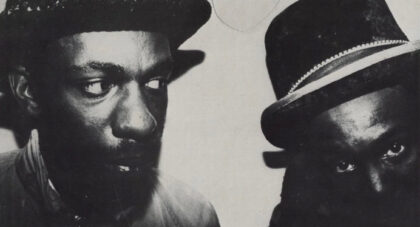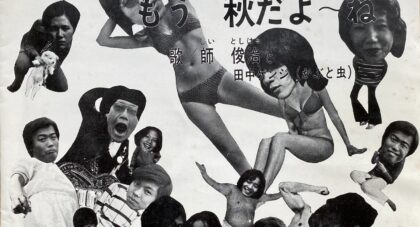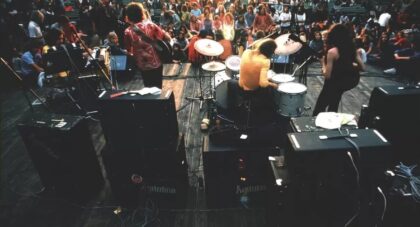By now, jazz has been back in the mainstream of music criticism and popular thought for so long, it seems impossible to imagine it was ever endangered. Though to hear Nate Chinen tell it, jazz was never in danger — we just weren’t paying attention.
Playing Changes, his recent survey of jazz in the 21s Century, is as lean as a Coltrane quartet and nearly as dense with information. Despite the limitations opposed by his title, Chinen provides an overview of the past forty or so years of jazz history, explaining not only how we got to this moment, but illuminating moments from the past four or five decades that may have escaped your notice.
We called him up at the studios of WBGO in Newark, where he’s Director of Editorial Content and got the low down on Playing Changes — and erased a few borders while we were at it.
Aquarium Drunkard: Playing Changes encompasses the work of a whole lot of artists who seem to have little to do with one another beyond the fact that other people have called what they do jazz. What then is jazz for you?
Nate Chinen: That’s a good question. We’ve come through a period where that notion of “definition” was the most pressing issue on the table, and it’s not really anymore. So I actually spend very little of my time thinking about what is or isn’t jazz. That’s a kind of a wishy-washy way of not answering your question, but what I will say is that jazz musicians, by and large, are conversant in a literature, in a lineage, in a set of strategies, in a sort of vocabulary. And so to be a functioning jazz musician is to have at your fingertips all of this information and all of these skills. And then how you choose to apply them is sort of another story.
AD: The concept of definition has been a big part of the way that jazz thinks and talks about itself, at least for the last half-century. Why is that? And do you think that’s unique with respect to jazz?
Nate Chinen: Well, there was a real need for a kind of legitimizing impulse in the music. I feel like, in the 1950s to 1960s, jazz really was pretty close to what you would consider popular music. It had a robust audience, it was a really vital part of the larger forces in culture. It was in the ’70s and ’80s when things began to feel a little bit more precarious. There was a feeling that this is an art form, it is something that is worthy of study and worthy of elevation to the stature enjoyed by classical music. And it was a fight, for a long time. Jazz was disreputable, and it was kind of bad-mouthed, and sort of understood just like “oh it’s all that jazz,” or “it’s good enough for jazz,” or “they’re just making it all up.” Musicians like Wynton Marsalis and institutions like Jazz at Lincoln Center really fought an important fight in obtaining a kind of respect and legitimacy for this music as an art form.
Only the good shit. Aquarium Drunkard is powered by its patrons. Keep the servers humming and help us continue doing it by pledging your support.
To continue reading, become a member or log in.


